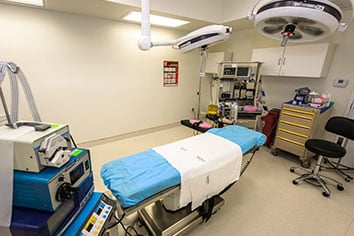Conveniently located to serve the areas of Miami and South Florida
A chemical peel is a special solution that aesthetic professionals can apply to the skin for exfoliation and rejuvenation purposes. This facial treatment helps improve the appearance of various skin concerns such as acne scars, hyperpigmentation, fine lines, wrinkles, sun damage, uneven skin tone, melasma, age spots, blemishes, and a dull complexion. These simple treatments have become increasingly popular due to their long-lasting benefits. In 2016, specialists performed more than 1.3 million chemical peels. (1)
At Rotemberg Plastic Surgery, we are dedicated to improving the overall look and feel of your skin. We find that chemical peels offer fantastic results for our patients because this form of skin treatment is beneficial for a wide variety of concerns. Chemical peels are a safe and subtle way to rejuvenate and revitalize the face, neck, decolletage, and more! Come in and meet with Dr. Silvia Rotemberg to find out what a chemical peel can do for you.
Contact our office or call (305) 274-5170 to learn more.
Contents
- 1 About Chemical Peels
- 2 Types of Chemical Peels We Offer
- 3 Benefits of Chemical Peels
- 4 Candidates for Chemical Peels
- 5 Consultation
- 6 How to Prepare for a Chemical Peel
- 7 Chemical Peel Treatment Process
- 8 Chemical Peel Recovery
- 9 Results of Chemical Peels
- 10 The Cost of a Chemical Peel in Miami
- 11 FAQ
- 12 References
About Chemical Peels
As you age, your skin has a harder time ridding itself of unhealthy layers which can make it dull and cause you to look older. With this non-invasive treatment, we can improve skin tone and texture, leaving you with healthier skin.
A chemical peel solution normally contains either alpha-hydroxy, glycolic, or lactic acids. The peel stimulates collagen production to help your skin renew itself. Depending on your skin condition, we can use a light peel to resurface the top layer, or a stronger peel to target deeper layers of your skin. After a chemical peel treatment, the skin will begin to peel off, exposing the trapped, underlying healthy skin cells. Of the 3.3 million skin resurfacing treatments that specialists performed in the U.S. in 2022, chemical peels were among the top five most popular. (2)
Chemical Peels vs Laser Resurfacing
Although chemical peels and laser resurfacing treatments have some similarities in their purpose, their differences are worth noting. With laser resurfacing, there are significantly more side effects and fewer results. Chemical peels treat more skin concerns than laser treatments do. Peels not only focus on removing skin, but they also exfoliate with a solution that treats issues from sun exposure, wrinkles, freckles, and pigmentation issues.
Lasers tend to only resurface or address skin tone irregularities and can cause redness, swelling, itching, scarring, or discolored pigmentation. Peels have fewer to no effects, making them the safer option of the two. Why not combat acne, wrinkles, and dark spots while removing the top layers of unhealthy skin?
Chemical Peels vs Microdermabrasion
Microdermabrasion is a treatment that uses either an abrasive wand or a vacuum device to suction and remove the unhealthy layers of skin. This treatment is beneficial for superficial acne and light wrinkles. However, if the patient is looking for a treatment that is more powerful and inclusive, chemical peels would be the better choice because the treatment can target deeper layers of the dermis. Microdermabrasion is also a longer treatment, and patients are required to come back for multiple sessions to get results. Chemical peels work to remove layers of skin at once to allow for quick rejuvenation of skin, not to mention the treatments only last 5-10 minutes. Chemical peels can save time in the long run and provide consistent results.
Types of Chemical Peels We Offer
Dr. Rotemberg offers several types of chemical peels that she favors for her patients: BioRePeelCl₃® Blue and Gold, Vitalize Peel®, Illuminize Peel®, and the Rejuvenize Peel™. These brands offer peels with different strengths that are beneficial for blemishes, wrinkles, and mild scarring. Depending on the current state of your skin, Dr. Rotemberg will take a thorough evaluation to see which will be the best fit.
BioRePeelCl₃® Blue and Gold
We offer both the Blue and Gold versions of the BioRePeelCl₃® peel to treat different areas of your body. The BioRePeelCl₃® Blue peel exfoliates the delicate skin on the face, neck, and décolleté. The formula contains 30% trichloroacetic acid to resurface your skin and reduce the appearance of wrinkles from skin aging or discoloration from inflammatory acne. Trichloroacetic helps you achieve smoother skin by removing impurities for improved skin clarity. The BioRePeelCl₃® Gold peel can revitalize the skin on your back, shoulders, buttocks, legs, knees, elbows, hands, and feet. The formula contains 50% trichloroacetic acid to treat areas of your body with thicker skin. We can perform a series of peels if you are struggling with deep scars or discoloration.
Vitalize Peel®
The Vitalize Peel® reduces the appearance of wrinkles and fine lines for smoother skin and can improve your skin tone. It is ideal for mild to moderate skin concerns; the peel improves skin texture for a younger, more radiant appearance. We can also reduce the appearance of scars from acne or damage from sun exposure. It is safe for all skin types, and although you can enjoy results after just one treatment, we can perform a series for long-lasting benefits.
Illuminize Peel®
The Illuminize Peel® peel is designed for mild skin imperfections. It helps treat acne, discoloration, pigmentation, and general signs of aging such as fine lines, wrinkles, and roughness. The formula that has been created and perfected to increase cell turnover rate, essentially allowing the skin to correct itself through the benefits of the peel. Also, the Illuminize Peel® rejuvenates your skin without heavy skin peeling, making it an ideal treatment before an important event.
Rejuvenize Peel™
The Rejuvenize Peel™ reaches your deeper skin cells to improve signs of aging. It also helps your skin heal from sun damage, melasma, and acne scarring. We can treat hyperpigmentation with the peel as well. This treatment, when applied, may result in heavier skin peeling depending on your skin type. The treatment helps your body remove the unhealthy layers and makes way for fresh new skin with minimal downtime. If your skin was able to tolerate the Vitalize Peel® well, we can use the Rejuvenize Peel™ to rejuvenate the deeper layers.
Benefits of Chemical Peels
Chemical peels are beneficial for many different skin concerns and can offer visible improvement to the quality and texture of the skin. Different types of peels offer different benefits, but in general, the treatment is good for:
- Fine lines and wrinkles that come from age or sun exposure: Chemical peels can help to soften the look of these wrinkles and fine lines to give the patient a more youthful and energized look. Chemical peels can improve photodamage by improving the structure of your skin at a cellular level. (3)
- Mild scarring: We can reduce mild scars such as acne scars, through chemical peel treatments that remove damaged layers of skin created by acne. In a recent study, more than half of the patients who received deep chemical peels improved acne scars by 51%. (3)
- Certain types of acne: We can exfoliate the skin and remove dead skin cells to treat acne. Patients who have acne and received chemical peel treatments have seen fantastic results without the hassle of medications or creams.
- Age spots, sun damage, and dark spots: We can help you achieve a more even skin tone with chemical peels. We can apply the solution to an area of concern for a brightening effect.
- Skin quality: We can improve the overall look and feel of the skin by removing the top layers to repair visibly damaged tissue. The treatment provides a more rejuvenated look in a less invasive manner.
Clinicians normally perform peels on the face, but they can also treat skin conditions on the neck, chest, and occasionally the back, depending on the doctor’s recommendations. Dr. Silvia Rotemberg has helped many of her patients meet their goals of clearer, more radiant skin through her years of experience performing this treatment.
Candidates for Chemical Peels
An ideal candidate for this treatment would be someone who has:
- Sun damage
- Skin discoloration caused by age spots, dark spots, or sun damage
- Fine lines and wrinkles
- Uneven skin tone due to scarring
Men and women looking into receiving a chemical peel treatment should be in good health, have no skin allergies, and preferably be non-smokers. It is important for someone considering this treatment to have realistic expectations. Chemical peels are not recommended for those who are pregnant or nursing, have taken Accutane within the last 6 months, or currently have a specific skin condition such as rosacea. Also, a chemical peel cannot treat lax skin or large scars. If this is one of your concerns, we will need to discuss other treatments during your consultation.
Consultation
During your consultation, we will ask about your skin type and medical conditions to ensure you are a good candidate for the treatment. If you have a condition to treat such as melasma, we will carefully select a treatment plan based on your Fitzpatrick skin type. (4) For patients with more melanin, we will need to discuss your goals and may recommend a series of lighter peels to safely exfoliate your skin. The skin is a crucial organ of the body, and it is sometimes a very picky and hard one to maintain. When looking to treat skin conditions or for a general pick-me-up, we advise you to review all options with us and choose a treatment that is suited to your skin type.
How to Prepare for a Chemical Peel
To prepare for a chemical peel, you will need to wear sunscreen consistently for 2 weeks before your appointment to avoid direct sun exposure that could cause damage to your skin. You will need a UVA and UVB-blocking sunscreen to thoroughly protect your skin. You must avoid any harsh cleansers and acid-based products that peel your skin before your appointment. We can discuss your routine during your consultation to ensure you have the best skincare routine for your needs leading up to your appointment.
Chemical Peel Treatment Process
Depending on the type of peel you choose, Dr. Rotemberg will cleanse your skin and apply the peel with a brush. She will evenly distribute the peel to ensure you receive a consistent treatment. We may apply the peel more than once depending on the type of treatment you have. We will leave the peel on your skin for a short time and remove it when your skin is ready. The procedure typically takes 30-90 minutes depending on the complexity and strength of your treatment.
Chemical Peel Recovery
Healing normally takes about a week. During this time, patients might experience slight scabbing; this is completely normal. This is the body’s way of ridding itself of damaged unhealthy skin. The collagen production that the treatment triggers will heal your skin, leading to a smoother, more youthful, and radiant appearance. During the recovery stage, you must refrain from direct sun exposure and use sunscreen daily to protect the fresh layer of skin after the treatment. You should use sunscreen indefinitely as a general skin protection rule.
Dr. Silvia Rotemberg will provide further instructions as necessary after your treatment. Since the treatment will stimulate collagen production for the next few weeks, you will need to take proper care of your skin. Throughout the recovery period, you will need to apply topical creams or medication if provided. Cleansing your skin often is important to avoid infections while the new layer is still fresh. Following the doctor’s instructions will help to ensure long-lasting results.
Results of Chemical Peels
Patients who received a chemical peel treatment by Dr. Silvia Rotemberg have had very satisfying results. Most patients saw improvements in skin tone, texture, and overall health. The skin should continue to appear smoother after healing. However, we recommend that patients return in 6 months for an additional treatment if they have a severe skin condition. It is important to note that chemical peels are not permanent; it is a treatment that can help reduce skin concerns, but wrinkles, lines, and sun damage can occur with aging and direct sun exposure.
The Cost of a Chemical Peel in Miami
The cost of a chemical peel can vary depending on factors such as the type of peel performed and the extent of treatment required. Dr. Rotemberg can assist patients with many different types of skin concerns with her medical-grade chemical peels. Her expertise and knowledge of this treatment and many others will give patients peace of mind knowing that their skin is being taken care of in the best possible way.
Contact our office or call (305) 274-5170 to learn more about how chemical peels can revitalize your skin.
FAQ
How long does a chemical peel procedure take?
The duration of a chemical peel procedure can vary depending on factors such as the size of the treatment area and the type of peel performed. Superficial peels often take around 30 minutes, while medium and deep peels may require longer sessions.
How often will I need a chemical peel?
This depends on the condition of your skin and your treatment plan. If you have sensitive skin, we may recommend a series of light peels. For patients who need light peels, we recommend that you return once a month. Medium peels are less frequent. We can discuss your needs and skin type during your consultation to create a treatment plan for your aesthetic goals.
Can I do a chemical peel at home?
No, chemical peels are medical-grade treatments that clinicians must perform in the office to ensure your skin remains safe and undamaged by strong formulas. In-office treatments overseen by a professional can help you achieve longer-lasting results.
References
- Soleymani T, Lanoue J, Rahman Z. A Practical Approach to Chemical Peels: A Review of Fundamentals and Step-by-step Algorithmic Protocol for Treatment. The Journal of clinical and aesthetic dermatology. 2018;11(8):21-28. Accessed February 6, 2024. https://www.ncbi.nlm.nih.gov/pmc/articles/PMC6122508/
- American Society of Plastic Surgeons. The American Society of Plastic Surgeons ® Procedural Statistics Data Insights Partners: 2022 ASPS Procedural Statistics Release.; 2023. https://www.plasticsurgery.org/documents/News/Statistics/2022/plastic-surgery-statistics-report-2022.pdf
- Rendon MI, Berson DS, Cohen JL, Roberts WE, Starker I, Wang B. Evidence and considerations in the application of chemical peels in skin disorders and aesthetic resurfacing. The Journal of clinical and aesthetic dermatology. 2010;3(7):32-43. Accessed November 7, 2023. https://www.ncbi.nlm.nih.gov/pmc/articles/PMC2921757/
- Sarkar R, Bansal S, Garg VK. Chemical Peels for Melasma in Dark-Skinned Patients. Journal of Cutaneous and Aesthetic Surgery. 2012;5(4):247-253. doi:https://doi.org/10.4103/0974-2077.104912


















